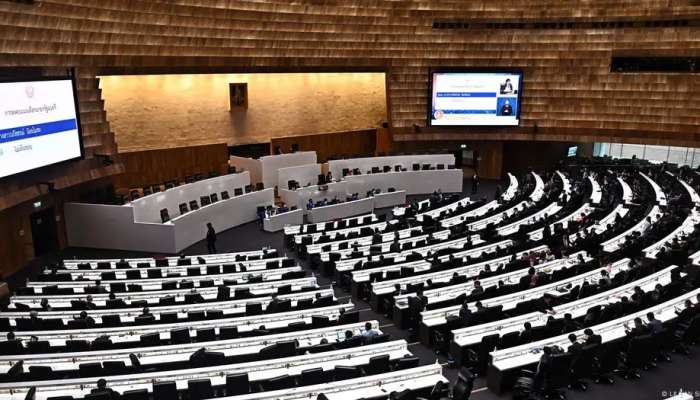
Bangkok: Thailand's ruling party has sought royal approval to dissolve the parliament for a new election moments after the largest opposition party backed a rival candidate on Wednesday to lead the Southeast Asian nation, which has been plunged into political chaos.
A race between rival factions to clinch power in the Thai parliament ensued after now-former Prime Minister Paetongtarn Shinawatra was dismissed by the Constitutional Court last week over her handling of a border dispute with Cambodia.
Her Pheu Thai party — currently governing in a caretaker capacity — was trying to court the country's biggest People's Party to bolster a fragile coalition.
Pheu Thai's former alliance partner, Bhumjaithai, looked to form its own government led by conservative tycoon Anutin Charnvirakul.
The People's Party — which controls nearly a third of lower house seats — said on Wednesday that it was backing Anutin.
Anutin told the media that he has the support of 146 lawmakers from seven groups and parties in his attempt to become prime minister.
Anutin — heir to a major construction company fortune — previously served as deputy prime minister and interior minister. He championed cannabis legalization during his stint as health minister in 2022.
The People's Party said its support for Anutin was conditional on Anutin dissolving the House of Representatives within four months, meaning his elevation to office would lead to fresh elections.
Under the Thai constitution, if the king gives his assent to the dissolution of parliament, an election must take place within 45 to 60 days.
The Bhumjaithai leader said on Wednesday that he was committed to the conditions laid out by the People's Party, including house dissolution.
Meanwhile, People's Party leader Natthaphong Ruengpanyawut said a parliamentary vote on a new prime minister could take place on Friday.
"There is a risk that there would be a return of the old coalition which has failed to run the country in the last two years, and a risk of the return of the coup maker as prime minister," he said at a briefing as he referred to Prayuth Chan-ocha, a general who seized power in 2014 and remains eligible to become the country's leader despite retiring.